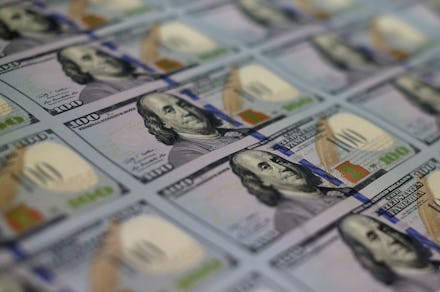Panama Who? The Smart Money Is Hidden in Delaware — Yes, Delaware

As the Panama Papers data leak continues to ensnare world leaders and billionaires around the globe, some might be surprised at how relative few of those implicated are Americans.
While it is possible that America's wealthy power-brokers are paradigms of scrupulous honesty, there is also another answer: Delaware.
Read more: Panama Papers Leak: Interactive Map Shows Where All the Money Is Hiding
Believe it or not, Delaware has more to offer than blue hens and Joe Biden's favorite Amtrak station: It's also the corporation incorporation capital of the United States. Today more than 65% of Fortune 500 companies have chosen to incorporate — or become officially recognized legal entities there — in addition to countless other smaller companies. The taxes and attendant fees these entities pay to the state make this an enormously lucrative proposition.
"This has been true literally from sometime toward the beginning of the 20th century until today," former Gov. Mike Castle said in a phone interview Thursday. "It's a very significant part of the revenue for the state of Delaware."
And while the vast majority of these companies — Mic included — are above board, the current laws make it easy for bad actors to stash secret money, according to watchdog group Unmask the Corrupt.
"It's very easy to set up shell corporations there. You can have a Delaware address, you have respectability, it's a way of doing it in secrecy," Leslie Wayne, an adjunct professor at NYU and Columbia, said on Thursday. Wayne, whose reporting on tax havens helped earn the International Consortium of Investigative Journalists to a 2015 Polk Award, said transparency is the main issue.
"There is no indication of the beneficial owners, the true owner of a business entity," she said. What that means is while it's easy enough to look up some basic information and official names about Delaware corporations, critical specifics like the true beneficiaries of corporate money can be hidden. "It doesn't give you real information," said Wayne.
However, with the lack of transparency comes consequences. For example, former Louisiana congressman William Jefferson (the one who was busted with $90,000 in cash in his freezer), operated no fewer than eight shell companies that he used to hide hundreds of thousands of dollars. International arms dealer Viktor Bout, the man who inspired Nicholas Cage's character in Lord of War, was also known to have shells set up in Delaware and other parts of the U.S.
Opening up a shell company in Delaware is almost absurdly easy. The process requires virtually no documentation, no license and no passport. Fusion reporter Natasha del Toro created one for her cat for an easy $248.
While Delaware has taken some minimal steps to lift the veil of secrecy, action at the federal level for all 50 states remains elusive. Since 2008, Michigan Sen. Carl Levin has repeatedly tried to force disclosure of beneficiaries with his Incorporation Transparency and Law Enforcement Assistance Act. In every instance the law has died in committee.
"That is a first step," Wayne said of the Levin bill, adding that once truce beneficiaries were disclosed, policing malfeasance would become significantly easier. The true outrage, she said, is not the information exposed in the Panama Papers, but rather that it was all done above board.
"You can get it here in the states," she said. "And it's all legal."